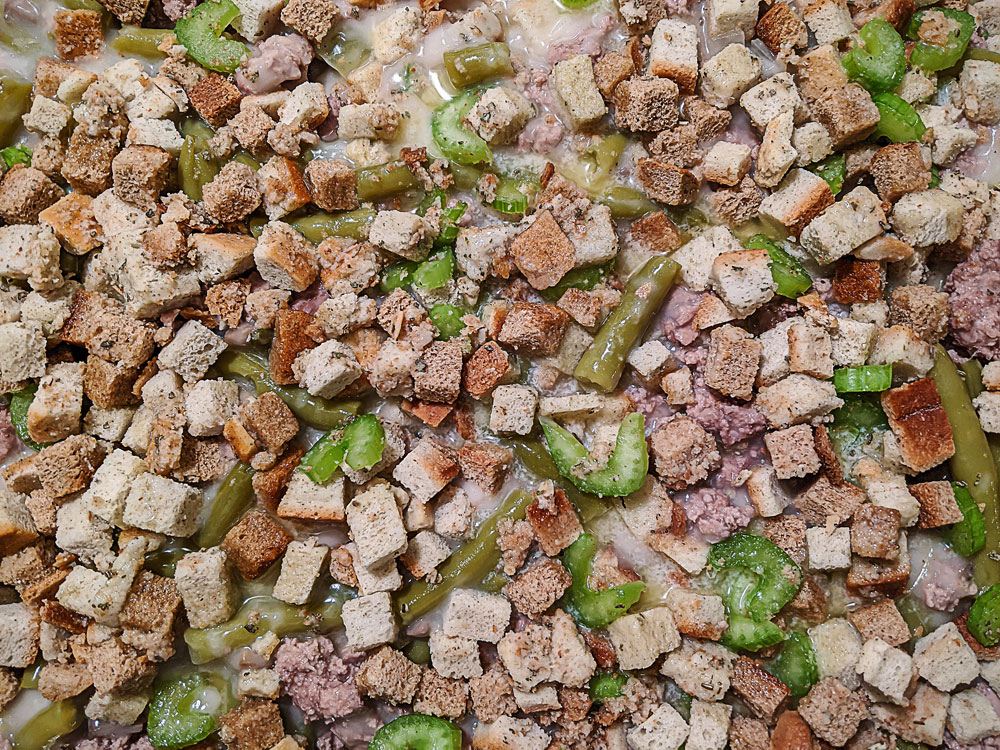
November 18, 2020; WSLS (Roanoke, Virginia)
US nonprofits are finding new ways to ensure neighbors in need are able to sit down to Thanksgiving dinner, despite COVID-19 challenges.
Next week’s holiday comes during a COVID-19 surge, when an increase in long-term unemployment and growing food insecurity are disproportionately impacting Americans. This year, more than 50 million people, including 17 million children, are experiencing food insecurity, an increase of about 42 percent from the previous year.
The pandemic’s impact is expected to continue into 2021, and nonprofits, like the United Way of the New River Valley in Virginia, are looking ahead to ensure pantries stay stocked next year. Across the country, food pantries are pressed to collect provisions and respond to the increased need.
In Texas earlier this week, more than 6,000 cars passed through the North Texas Food Bank’s Drive-Thru Mobile Pantry. During a five-hour event, over 600,000 pounds of food were distributed, with each person receiving about 20 meals. More than 7,200 turkeys were also given to neighbors in need. Of those served over the past year, 40 percent have come to the food bank due to COVID-19.
At the Ritter Center in Marin County, California, near San Francisco, Thanksgiving dinner is not seen as a “luxury” issue but one of “equity,” something all Americans deserve. The Center has seen a 20 percent increase in recipients of their Thanksgiving “food bags” while typical pantry visits are up 40 to 50 percent from pre-COVID levels.
Physically distanced food distributions have become business as usual for nonprofits—and some are even including health services during Thanksgiving programs, such as the free onsite COVID-19 testing and flu shots from the Gullah Geechee Initiative Foundation in Beaufort, South Carolina.
In addition to responding to food and health needs, nonprofits remain keenly aware of the impact of social isolation during the holidays. In-person Thanksgiving meals are one way historically nonprofits have bridged these gaps. While some annual in-person events have become take-out or delivery programs, others have been canceled.
In New Jersey, the HealthBarn Foundation canceled its in-person meal for 150 senior citizens. Instead, seniors will be given frozen meals they can reheat for the holiday.
Sign up for our free newsletters
Subscribe to NPQ's newsletters to have our top stories delivered directly to your inbox.
By signing up, you agree to our privacy policy and terms of use, and to receive messages from NPQ and our partners.
“No one wanted to cancel it,” said Stacey Antine, director of HealthBarn Foundation to New York City’s WABC. “You want to show that you still love people and honor them. And you want to make sure that they have nutritious food for this important holiday dinner.”
This sentiment was echoed by Major Charles Powell, area commander for Greater Birmingham Salvation Army, which will not be moving forward with its larger holiday meal for the community. Instead, the nonprofit will offer Thanksgiving meals to its shelter residents.
Powell told Birmingham’s WBRC, “There’s a lot of people in our community who really don’t have a whole lot of social interaction with other people and they look forward to this Thanksgiving meal because it provides an opportunity to sit down with other people.”
Nonprofits are also experiencing restrictions due to the limited numbers of volunteers able to participate in closed spaces and complete event tasks. The Knights of Columbus in Chicopee, Massachusetts considered how to scale down volunteer assignments, which are held primarily by senior citizens in group settings, but ultimately chose to cancel their annual event.
“There’s no way we could safely deliver it,” Matthew Cooke, the grand knight for the Fairview Knights of Columbus, Council 4044, said to MassLive. “We had a couple members die of COVID. We don’t want to lose any more.”
Understanding the importance and impact of physical distancing, nonprofits are headed online to share the holiday spirit, from crowdsourcing ideas for physically distanced variants of longstanding holiday traditions like The Community Fund of Darien to virtual turkey trots.
While requests for canned goods abound, many experts urge people to instead send cash donations. Nonprofits and food banks can stretch dollars through food networks of manufacturers, retailers, and farmers, according to the Feeding America Hunger Blog. They can also reduce food waste and ensure fresh healthy produce reaches people in need.
As Tristan Hopper of Canada’s National Post recommends, “Put down the can and pick up the credit card, all in the service of the noble cause of charitable efficiency.”— Nicole Zerillo












